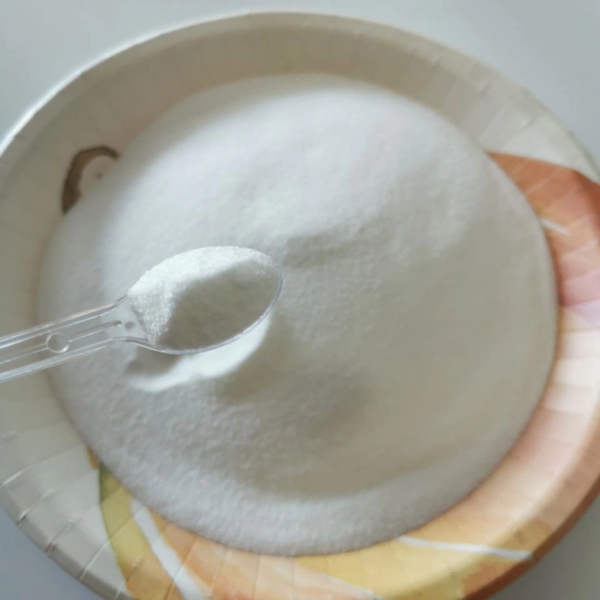Views: 222 Author: Sara Publish Time: 2025-10-19 Origin: Site








Content Menu
● Overview of Isomaltulose and Its Benefits
● Leading Isomaltulose Manufacturers in Brazil
● Product Applications in Brazil
● Challenges Facing Brazilian Manufacturers and Suppliers
● Frequently Asked Questions (FAQ)
>> 1. What are the main benefits of isomaltulose compared to regular sugar?
>> 2. Who are the key suppliers of isomaltulose in Brazil?
>> 3. In which product categories is isomaltulose most commonly used in Brazil?
>> 4. What challenges do Brazilian manufacturers face in the isomaltulose market?
>> 5. What is the future outlook for isomaltulose in Brazil?
Isomaltulose, also known as Palatinose, is a natural, low-glycemic sugar alternative that is gaining significant traction worldwide due to its health benefits. It is a disaccharide carbohydrate derived from sucrose and is characterized by a slow digestion rate, which supports sustained energy release and is tooth-friendly, making it a popular ingredient in health-focused food, beverage, and pharmaceutical products. In Brazil, the demand for isomaltulose is growing rapidly as manufacturers and suppliers cater to rising consumer preferences for natural and functional sweeteners. This article explores the top isomaltulose manufacturers and suppliers in Brazil, their market presence, product applications, and evolving trends shaping the industry.

Isomaltulose is increasingly valued for its unique nutritional profile. Unlike regular sugar, it has a low glycemic index (GI) of around 32, which helps control blood sugar levels and is suitable for diabetic-friendly formulations. Its resistance to quick digestion also means it does not contribute to tooth decay, making it an attractive sweetener for oral health. Additionally, isomaltulose is fully digestible, providing a steady source of energy, often favored in sports nutrition and clinical dietary products. Due to these attributes, isomaltulose finds extensive usage in confectionery, dairy products, beverages, supplements, and even animal nutrition.
The Brazilian market has witnessed substantial growth in the adoption of isomaltulose as consumers increasingly demand healthier alternatives to traditional sugars. The sugar substitutes market in Brazil, which includes isomaltulose among other sweeteners, is projected to reach significant revenues, reflecting growing health awareness and regulatory support for natural ingredients. Brazil's food and beverage sectors are innovating rapidly to incorporate isomaltulose in a variety of product segments, responding to both local and export market demands.
While Brazil does not have as many dedicated isomaltulose manufacturers as some global markets, it nonetheless hosts several key players and suppliers that import, distribute, and tailor isomaltulose for the domestic industries:
- Barentz Brazil: Part of the global Barentz group, a renowned specialty chemicals and ingredients distributor, Barentz Brazil supplies high-quality isomaltulose for food and pharmaceutical industries in Brazil and Latin America. They provide comprehensive support for product formulation and compliance.
- Frusano GmbH (Distributor Partners): Frusano, a major isomaltulose producer based in Germany, works with local distributors in Brazil to supply its Palatinose product. Their presence enables Brazilian manufacturers to access premium-grade isomaltulose for various applications.
- Multinational Ingredient Suppliers: Global players such as Cargill, BENEO (Südzucker AG), and other multinational ingredient suppliers actively serve the Brazilian market through local subsidiaries or partners. They offer isomaltulose-based ingredients tailored for clean-label and health-centered product development.
Brazilian manufacturers utilize isomaltulose across diverse categories:
- Confectionery and Bakery: Isomaltulose is incorporated to reduce sugar content while maintaining sweetness and texture, especially in sugar-free or low-glycemic treats.
- Beverages: Functional drinks, including sports and energy drinks, benefit from isomaltulose's slow energy release, appealing to health-conscious consumers.
- Dairy and Frozen Desserts: Isomaltulose helps improve nutritional profiles in yogurts, ice creams, and dairy-based snacks.
- Pharmaceuticals and Supplements: The prebiotic and low-GI properties of isomaltulose are leveraged in supplements and over-the-counter medicines targeted at metabolic health.
Manufacturers in Brazil are increasingly looking at enzyme immobilization technology to enhance the efficiency of isomaltulose production, aiming to reduce costs and environmental impact while improving product quality. The drive toward natural, non-cariogenic sweeteners aligns well with Brazil's large health and wellness market. Furthermore, Brazilian companies are exploring new applications by combining isomaltulose with plant-based proteins and fibers to create multifunctional health ingredients.

Although the market potential is substantial, Brazilian manufacturers and suppliers face several challenges:
- Production Scale: Limited local production capabilities mean high reliance on imports, impacting pricing and supply chain stability.
- Regulatory Compliance: Navigating food and pharmaceutical regulations to certify isomaltulose-containing products can be complex, especially for new market entrants.
- Competition: Increased competition from other natural sweeteners like stevia and erythritol requires continuous innovation and marketing efforts.
The Brazilian isomaltulose market is set to grow robustly due to shifting consumer preferences toward healthier lifestyles and clean-label products. Investments in local production capacity, research into application formats, and wider adoption in animal nutrition are expected to drive growth. Partnerships between global ingredient providers and Brazilian distributors will further facilitate market penetration, making isomaltulose a staple in Brazil's sugar substitute landscape.
Isomaltulose is emerging as a vital ingredient in Brazil's evolving health and wellness food system. Supported by both global and local manufacturers and suppliers, Brazil is poised to be a significant market for isomaltulose, catering to a broad array of sectors including food, beverages, pharmaceuticals, and animal nutrition. Despite challenges such as production scale and regulatory hurdles, innovation and consumer demand are encouraging the expansion and diversification of isomaltulose offerings. As health-conscious consumption continues to rise, Brazilian companies committed to quality and sustainability will play a pivotal role in the regional and global isomaltulose supply chain.

Isomaltulose has a low glycemic index, supports sustained energy release, and is tooth-friendly, making it an ideal sugar alternative for diabetics and health-conscious consumers.
Key suppliers include Barentz Brazil, multinational companies like Cargill and BENEO, and distributors for producers such as Frusano GmbH.
Isomaltulose is used widely in confectionery, bakery, beverages, dairy products, pharmaceuticals, and dietary supplements.
Challenges include limited local production, regulatory compliance complexity, and competition from other natural sweeteners.
The outlook is positive with expected growth driven by consumer demand for natural, low-GI sweeteners and increasing innovations in production and applications.
[1](https://www.linkedin.com/pulse/brazil-isomaltulose-raw-material-market-size-ndnde)
[2](https://www.maximizemarketresearch.com/market-report/global-isomaltulose-market/105238/)
[3](https://www.fortunebusinessinsights.com/isomaltulose-market-110762)
[4](https://www.credenceresearch.com/report/isomaltulose-market)
[5](https://www.databridgemarketresearch.com/reports/global-isomaltulose-market)
[6](https://www.transparencymarketresearch.com/isomaltulose-market.html)
[7](https://www.gminsights.com/industry-analysis/isomaltulose-market)
[8](https://www.researchandmarkets.com/report/isomaltulose-market)
[9](https://growthmarketreports.com/report/isomaltulose-palatinose-market)
[10](https://www.grandviewresearch.com/horizon/outlook/sugar-substitutes-market/brazil)
